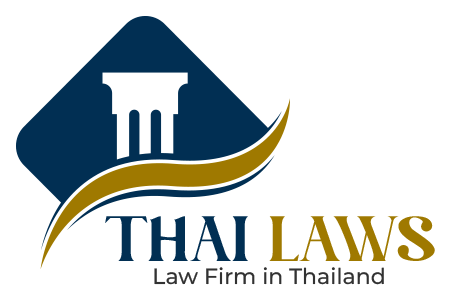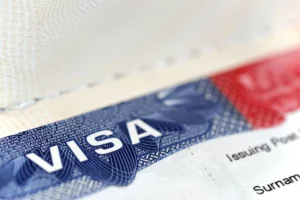Introduced in 2018, the Thailand Smart Visa was designed as part of the government’s efforts to attract highly skilled professionals, entrepreneurs, investors, and executives to support innovation and economic development in targeted industries. Administered by the Board of Investment (BOI) in conjunction with multiple state agencies, the Smart Visa offers an alternative to traditional work permits, streamlining the process for foreign talent seeking long-term stay and employment in Thailand.
This article explores the Smart Visa framework in depth, including eligibility criteria, benefits, procedures, and strategic implications for foreign nationals and Thai-based companies.
I. Legal Basis and Objectives
The Smart Visa is a product of coordinated policy between:
-
Thailand Board of Investment (BOI)
-
Immigration Bureau
-
Ministry of Foreign Affairs
-
Ministry of Labour
-
Digital Economy Promotion Agency (DEPA)
It was enacted by virtue of cabinet resolutions and administrative regulations, not through a standalone legislative act. Its goal is to facilitate legal immigration for high-potential individuals in S-Curve industries, thereby enhancing Thailand’s competitive edge in innovation, science, and sustainable development.
II. Core Benefits of the Smart Visa
The Smart Visa offers significantly more flexibility than a Non-Immigrant B visa and traditional work permit model. Key advantages include:
-
No separate work permit required
-
Up to 4-year visa validity (compared to the standard 1-year)
-
90-day reporting extended to once a year
-
Spouse and children eligible for accompanying visas
-
Spouse may legally work without needing a separate permit
-
Ability to change employers within approved sectors with approval
These benefits eliminate some of the bureaucratic friction commonly experienced by skilled expatriates in Thailand.
III. Smart Visa Categories
There are five primary categories under the Smart Visa program:
1. Smart “T” (Talent)
For highly skilled professionals in targeted industries.
-
Must have employment or service contract with a Thai entity
-
Minimum salary:
-
THB 100,000/month for most applicants
-
THB 50,000/month for experts working in startups or outside Bangkok
-
-
Requires expertise in science and technology (e.g., AI, robotics, biotech)
-
Must be endorsed by the designated agency (e.g., NSTDA)
2. Smart “I” (Investor)
For individuals investing in technology-based businesses.
-
Minimum investment:
-
THB 20 million in a single company
-
Company must be in one of the 13 target sectors (e.g., medical tech, automation)
-
-
Proof of ownership, shareholding, and business registration required
-
Investment can be direct (equity) or through venture capital
3. Smart “E” (Executive)
For senior-level executives working in qualified companies.
-
Must hold a high-level position (e.g., CEO, Managing Director)
-
Minimum salary: THB 200,000/month
-
Requires at least a bachelor’s degree and 10 years of work experience
-
Company must be in a targeted sector and meet BOI criteria
4. Smart “S” (Startup)
For startup founders in innovation-driven businesses.
-
Must hold 25% of registered capital or be a director
-
Company must be registered in Thailand
-
Business must be certified by relevant agencies
-
Initial visa is valid for 1 year, renewable upon progress review
-
Requires proof of at least THB 600,000 in savings for the applicant (THB 1.2 million if including dependents)
5. Smart “O” (Other/Dependents)
For legal dependents (spouses and children) of Smart Visa holders.
-
Smart “O” holders enjoy similar benefits, including:
-
4-year stay (co-terminous with primary visa)
-
Children can attend Thai schools
-
Spouses can work in Thailand without a separate work permit
-
IV. Targeted Industries
The Smart Visa is restricted to specific “S-Curve” industries prioritized by Thailand’s national policy:
-
Next-Generation Automotive
-
Smart Electronics
-
Medical and Wellness Tourism
-
Agriculture and Biotechnology
-
Food for the Future
-
Robotics
-
Aviation and Logistics
-
Biofuels and Biochemicals
-
Digital Industry
-
Medical Technology
-
Defense Technology
-
Circular Economy
-
Alternative Dispute Resolution (ADR), Human Capital Development, and Environmental Management (recent expansions)
Each applicant must be associated with a company or activity operating within these defined sectors, which are verified through agency endorsements.
V. Endorsement and Approval Process
Unlike standard visas, Smart Visa applications require a pre-screening endorsement before submission to immigration.
Step-by-Step Process:
-
Initial Screening
-
Submit application online via https://smart-visa.boi.go.th
-
Upload supporting documents (employment contract, CV, business plan, proof of investment, etc.)
-
-
Endorsement Evaluation
-
Conducted by relevant agency:
-
e.g., National Innovation Agency (NIA), BOI, NSTDA, DEPA
-
-
Processing time: ~30 working days
-
-
Letter of Endorsement Issued
-
Valid for 60 days
-
Used to apply for visa at Thai embassy/consulate or within Thailand
-
-
Visa Issuance
-
Apply at Royal Thai Embassy or Immigration Bureau (if in Thailand)
-
Biometric capture and background screening
-
Pay Smart Visa fee (THB 10,000/year)
-
-
Work in Thailand
-
No additional work permit application needed
-
Annual report required (instead of 90-day report)
-
VI. Limitations and Compliance Considerations
Despite its many advantages, the Smart Visa is not suitable for all foreign workers or investors.
Limitations:
-
Only applicable in approved industries and occupations
-
Salary and experience thresholds may exclude mid-level professionals
-
Visa benefits are voided if employment or investment ends
-
Does not automatically grant permanent residency
-
Changing employers requires fresh endorsement
Ongoing Obligations:
-
Report address to immigration once per year
-
Notify the Smart Visa Unit of any change in employment or business status
-
Undergo annual revalidation of eligibility for some categories
Violations can lead to cancellation of the visa and blacklisting under immigration law.
VII. Strategic Uses and Policy Implications
The Smart Visa serves as a strategic alternative to Thailand’s traditional work permit regime. It is particularly beneficial for:
-
Multinational companies establishing regional R&D hubs
-
Foreign venture capitalists investing in deep-tech Thai startups
-
Entrepreneurs in digital, healthtech, and agritech fields
-
Universities or incubators recruiting foreign researchers
The program reflects Thailand’s broader push toward value-based economy (Thailand 4.0), with Smart Visa holders expected to contribute to technology transfer, human capital development, and entrepreneurial innovation.
VIII. Comparison with Other Visa Programs
| Feature | Smart Visa | Non-B Visa + Work Permit | LTR Visa |
|---|---|---|---|
| Work permit required? | ❌ No | ✅ Yes | ❌ No |
| Maximum duration | 4 years | 1 year (renewable) | 10 years (renewable) |
| Dependents allowed? | ✅ Yes (Smart O) | ✅ Yes | ✅ Yes |
| Industry restriction? | ✅ Yes (13 sectors) | ❌ No | ✅ Yes (criteria-based) |
| Salary thresholds | ✅ High thresholds | Variable | ✅ Based on criteria |
The Smart Visa is sector-focused, whereas the LTR Visa targets wealth, retirement, and digital nomad categories.
Conclusion
The Thailand Smart Visa offers a progressive and investor-friendly solution for foreign professionals, executives, and entrepreneurs engaged in innovation-driven sectors. While the program imposes stringent eligibility and industry criteria, it significantly reduces the red tape historically associated with Thailand’s foreign labor and visa policies. For companies and individuals seeking to play a strategic role in Thailand’s evolving economy, the Smart Visa serves as both a legal gateway and a policy endorsement.




